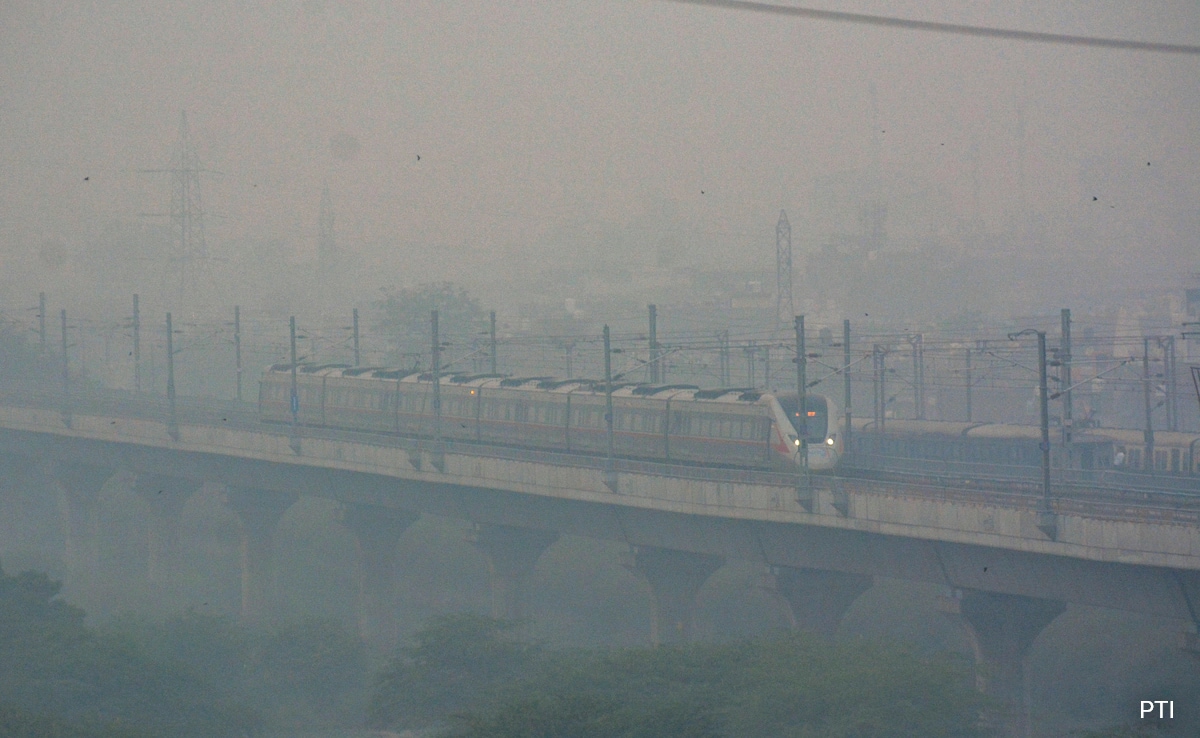
The doctor added that obesity in children could be another ill effect of pollution.
New Delhi:
As air quality continues to remain severe in Delhi NCR, experts warn of ill effects on the foetus while alerting to a massive health emergency situation. According to senior lung specialist at Medanta Hospital, Dr Arvind Kumar, air pollution affects every age group and air purifiers are not a solution.
He said, “All age groups are adversely affected by air pollution. You might wonder how an unborn child is affected because that child is not breathing outside air. When the child’s mother is breathing, the toxins go to her lungs; through the lungs, they go into the blood; and through the placenta, they reach the foetus and cause ill effects on them.”
“When the child is born, they start breathing the same air. Our air quality is around 450-500, which is equal to smoking about 25-30 cigarettes in terms of damage to the body… They could have all sorts of breathing problems,” Dr Kumar added.
Dr Kumar further said, “If you are asking whether air purifiers are the solution to air pollution, my answer is a big no. Air pollution is a public issue, and air purifiers are a personal solution. If the outside air’s AQI is 500, then no air purifier can bring it to 15 or 20, and even if it does, then its filter will get wasteful soon. And you have to change it within one to two weeks. If you will not change, then its effectiveness will be less.”
The doctor added that obesity in children could be another ill effect of pollution, apart from causing asthma.
“From head to toe, there’s no organ in the body that escapes the ill effects of air pollution. There is now evidence to say that it causes obesity and asthma. When there is obesity and exposure to air pollution, the chances of asthma are many times higher, as was shown by the Lung Care Foundation. In a study of 1,100 children in Delhi, we found that one out of three children is suffering from asthma, and when obesity was also present, this number went higher,” Dr Kumar added.
He also said that studies also show the chances of chronic diseases and disabilities due to prolonged exposure to pollution.
“Three days ago, there was a study from Europe showing that the incidence of breast cancer is higher in the population exposed to air pollution. It causes a huge number of diseases and disabilities. There have been millions of premature deaths. There’s data from the University of Chicago that says that in Northern India, on average, each of us loses about 9-10 years of our lives because of exposure to the levels of air pollution. To summarise, it’s a massive health emergency,” Dr Kumar said.
Meanwhile, the air quality in Delhi remained in the ‘Severe’ category on Sunday for the fourth consecutive day, though with a marginal dip in the Air Quality Index (AQI) recorded at 410 against 504 on Saturday, as per the System of Air Quality Forecasting and Research (SAFAR-India).
(Except for the headline, this story has not been edited by NDTV staff and is published from a syndicated feed.)




